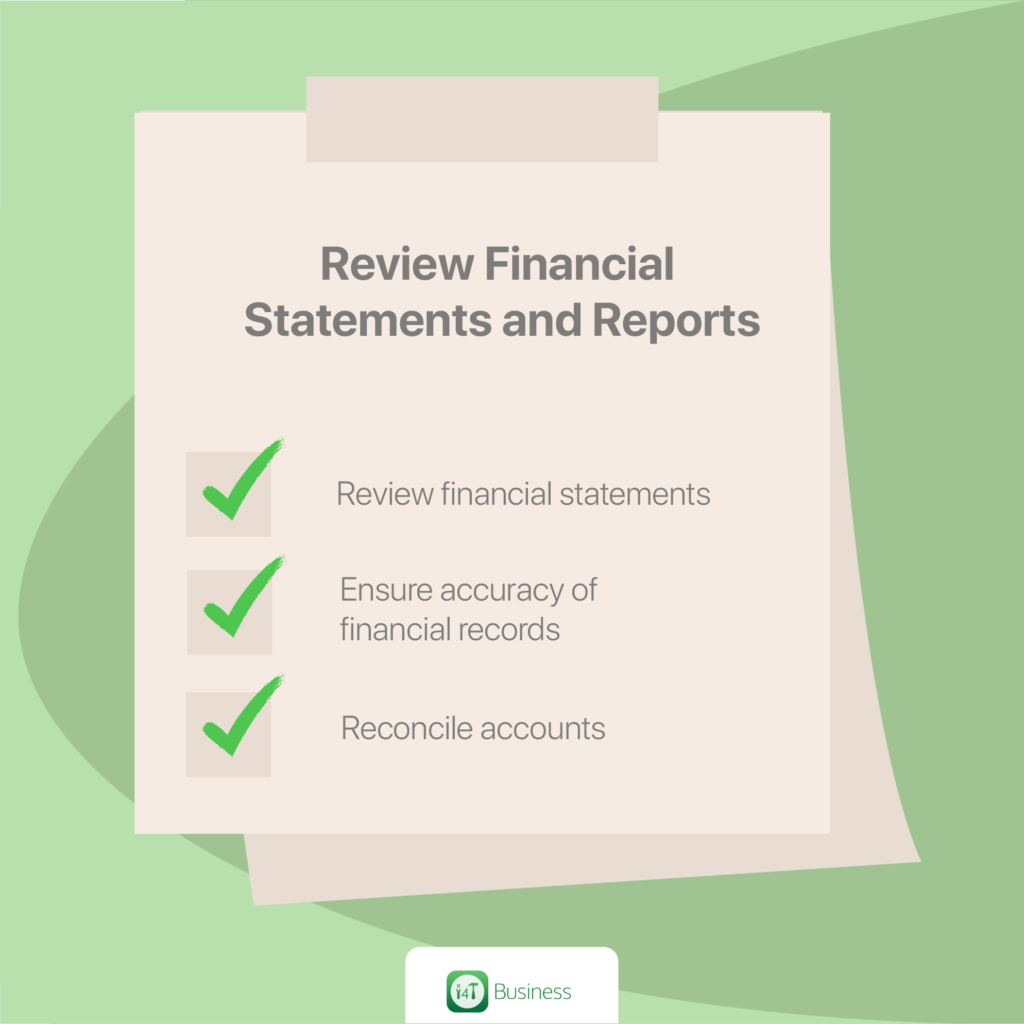The end of the financial year (EOFY) in Australia is more than just a date on the calendar it’s crunch time for tradie businesses.
With tax obligations, paperwork, and financial planning all coming around, preparing yourself for EOFY beforehand will help you finish things smoothly without scrambling.
It doesn’t matter whether you’re running solo or operating with a team; you need a good plan to prepare. Keep this EOFY checklist as your go-to guide to wrap up the year with confidence and set yourself up for a better year ahead.
What are the benefits of preparing for EOFY?
Preparing for the end of the financial year is more than just a routine task—it’s an opportunity to give your tradie business a significant advantage. Here’s how preparing for EOFY can benefit your business:
- Maximise tax deductions: When you prepare for EOFY in Australia beforehand, you can make the most of the available tax deductions. Therefore, you can retain more money instead of paying them to the tax office. Make sure that you know what you can claim and keep your receipts ready to get the maximum out of these potential deductions.
- Ensure compliance: No one wants to deal with penalties or audits. By preparing for EOFY properly, you’ll ensure all your financial records are accurate and up to date. This keeps you in line with ATO regulations, saving you from any nasty surprises down the road.
- Assess financial health: EOFY is the perfect time to take a closer look at your business’s finances. Are you spending too much in certain areas? Could you be investing more wisely? This is your chance to review what’s working and what isn’t so you can make smarter financial decisions moving forward.
- Plan for the future: With a clear picture of your current financial position, you can set realistic goals and plan for the year ahead. EOFY preparation will help you make better decisions that benefit your business in the long run, whether it’s expanding your services, investing in new equipment, etc.
Review financial statements and reports

Taking the time to review and tidy up your financial records before the end of the financial year in Australia can make a huge difference for your business. Here’s why these steps are so important:
- Review financial statements and reports: Go through your financial statements and reports to see where your business stands. Are there any trends or patterns that need attention? You can make better decisions by understanding your financial performance and spotting areas that need improvement before heading into the new financial year.
- Ensure accuracy of financial records: Double-check all your financial records to make sure everything is accurate and up to date. This includes invoices, receipts, expense reports, etc. Accurate records are essential not just for compliance, but also for making sure you’re claiming all the deductions that you’re entitled to.
- Reconcile accounts: Take the time to reconcile your accounts, including your bank statements and credit card accounts. This step ensures that your financial records match up with your bank records, helping you spot any discrepancies and resolve them before they become bigger issues.
Conduct inventory and asset valuation
As the end of the financial year approaches, it’s the perfect time to take stock of your assets and supplies. Once you get a clear picture of what you have on hand, you can manage your finances better and make smarter business decisions. Here’s what you should do under this step:
- Conduct inventory and asset valuation: Take a good look at everything your business owns—from supplies to tools and equipment. Knowing the current value of your assets can help you understand their worth and prepare your financial statements. Plus, it’s a great way to identify any items that you need to replace or upgrade.
- Stocktake of supplies: Go through your inventory of your supplies to see what’s in stock and what’s running low. Therefore, you can avoid running out of essential items and get a clear idea of what you need to reorder. When you stay on top of your stock levels, it can save you time and money in the long run.
- Valuation of tools and equipment: Assess the value of your tools and equipment. Are they still in good working order, or is it time to invest in new gear? You can plan for future purchases by knowing the condition and value of your equipment and ensuring your business is operating at its best.
Verify income and expense transactions
Recording your income and expenses accurately can help you track your finances and avoid surprises in the future. Let’s examine what you need to do at this step.
- Verify income and expense transactions: Go through all your income and expense transactions to ensure everything is correctly recorded. This step helps you confirm that your financial records are accurate, giving you a clear picture of your business’s financial health. Plus, it’s essential to make sure you’re reporting the right figures to the tax office.
- Review outstanding invoices: Take a moment to review any outstanding invoices. Are there clients who still owe you money? Following up on unpaid invoices can boost your cash flow and make sure you’re not leaving any money on the table. It’s a simple step that can make a big difference to your final financial statements.
- Ensure all expenses are recorded: Double-check that every expense has been recorded, regardless of the amount. This ensures you’re claiming all possible deductions, which can lower final payable taxes. It also helps you keep an eye on where your money is going so you can better manage your business finances.
Superannuation contributions for employees
Superannuation is an essential obligation that you have to fulfil as an employer. It’s not just about compliance—it’s about taking care of your employees and keeping your business in good standing. Here’s why staying on top of superannuation contributions is so important:
- Superannuation contributions for employees: Ensure that all superannuation contributions for your employees are up to date. By meeting these obligations, you’re not only complying with the law but also supporting your team’s financial future. It’s a simple step that shows your employees you value their hard work and are committed to their well-being.
- Meet superannuation obligations: Staying compliant with superannuation obligations is crucial to avoid penalties and maintain your business’s reputation. By making sure all contributions are paid on time, you’re protecting your business from potential fines and ensuring everything is ready for the EOFY.
Review and report Fringe Benefits Tax (FBT)
It’s important to take a closer look at any fringe benefits you’ve provided to your employees. Not only does this ensure compliance, but it also helps you manage your business more effectively. Here’s how reviewing and reporting Fringe Benefits Tax (FBT) can benefit your business:
- Review and report fringe benefits : Go over all the fringe benefits you’ve offered to your employees throughout the year. This includes things like company cars, entertainment expenses, or any other perks. Reporting these benefits accurately helps you stay compliant with tax regulations and avoid any unexpected penalties. It’s a key step in making sure your business’s financial records are complete and correct.
- Assess fringe benefits provided: Take some time to assess the fringe benefits you’ve provided. Are they still necessary, or could your resources be better allocated elsewhere? Evaluating the benefits you offer can help you decide if they’re delivering value to your employees and your business. It’s also a good opportunity to consider any changes that could improve employee satisfaction while keeping costs in check.
Prepare and lodge your business tax return
It’s time to get serious about preparing and lodging your business tax return as the financial year ends. While it might seem challenging, taking the right steps now can make the process much smoother and even save you money. Here’s how to get it done and why it’s important:
- Gather required documents: Start by pulling together all the necessary documents for your tax return, including income statements, expense receipts, and any other financial records. Having everything organised and ready will save you time and reduce stress when it’s time to lodge your return. Plus, it ensures that you’re not missing any important details that could impact your tax outcome.
- Lodging options: Know your options when it comes to lodging your tax return. You can do it yourself using online platforms, or you can work with a tax professional who can help you with the tax system. Make sure to select an option that saves time and ensures your return is accurate and compliant.
- Tax deduction strategies: Take advantage of tax deduction strategies to minimise your taxable income. This could include claiming deductions for business expenses like equipment, office supplies, and some vehicle costs.
Plan for the next financial year
As you wrap up the current financial year, it’s the perfect time to start planning for the next one. Taking a proactive approach can help you set clear goals, manage your budget effectively, and grow your business. Here’s how planning for the next financial year can benefit your business:
- Set financial goals: Start by setting financial goals for the upcoming year. Whether it’s increasing revenue, reducing costs, or improving profit margins, having clear goals gives you direction and keeps your business on track.
- Budget planning: Create a budget that aligns with your financial goals. You can allocate resources more effectively, control spending, and ensure you have the funds to support your business by planning the budget. A well-planned budget is key to maintaining financial stability and avoiding cash flow problems.
- Business growth strategies: Consider strategies that can drive your business growth in the new financial year. This might include expanding your services, entering new markets, or investing in technology. By planning for growth now, you’re setting the foundation for long-term success and ensuring your business continues to thrive.
Wrapping up
As the end of the financial year comes around the corner, you must take action to ensure your tradie business is fully prepared. By following this EOFY checklist, you’ll meet all your obligations, optimise your financial outcomes, and set the stage for future growth.
Don't leave your success to chance ,start EOFY preparation today and secure a strong foundation for the year ahead.
Take a moment to review what worked and what didn’t during this year’s EOFY preparation. Did you struggle with keeping track of expenses or finding all the necessary documents? Learn from these challenges to design a better system so you’re not repeating the same mistakes next year.
One of the best ways to streamline your EOFY preparation is by using job management software designed specifically for tradie businesses. These tools can help you track expenses, manage invoices, and keep your financial records in order throughout the year. Therefore, all your financial data is ready to go as the EOFY comes around, making the process faster and less stressful.
If you are looking for such software, make sure to try i4T Business. Our software has all the necessary features to help you organise invoices and maintain financial records. It integrates with leading accounting platforms like Xero, MYOB, and QuickBooks, too.
Contact our team to get your free trial today and experience how our software can help you with EOFY preparations.
FAQs
It ensures that all wages, superannuation, and leave entitlements are correctly recorded. This is crucial when reporting to the ATO accurately and to issue correct payment summaries to employees.
You can minimise your tax liability by making the most of available deductions, such as prepaying expenses for the next financial year, writing off bad debts, and taking advantage of small business tax concessions. Consulting with an accountant can help you identify all possible deductions.
To ensure accuracy, reconcile all accounts, review all financial transactions, and double-check that all income and expenses are correctly recorded. Using accounting software can help automate and simplify this process, reducing the risk of errors.
If you find discrepancies in your financial records, it’s important to address them immediately. Investigate the source of the discrepancies, correct any errors, and update your records. If needed, consult with your accountant to resolve any complex issues.
You need to keep records of all financial transactions, including income, expenses, employee records, and asset registers. These records should be kept for at least five years after the tax return is lodged, as required by the ATO, to ensure you’re compliant with audit requirements.
Hot off the press!

Field Service Management sector operates, the i4TGlobal Team loves to share industry insights to help streamline your business processes and generate new leads. We are driven by innovation and are passionate about delivering solutions that are transparent, compliant, efficient and safe for all stakeholders and across all touch points.




